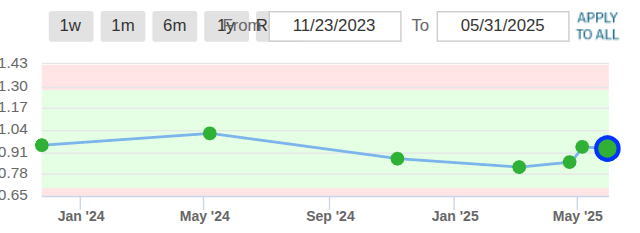I started taking 5g daily creatine a few years ago, and around the same time my doctor also noticed my creatinine levels were high in my lab work.
He told me it was likely because of my creatine supplementation and not a kidney problem. Just to be sure, though, he recently asked me to stop taking creatine for two weeks and get new labwork.
I’ve seen a lot of people repeat the advice that creatine doesn’t affect creatinine levels, but the results from my test are pretty clear (see below). I re-started creatine again after the test, which my doctor suggested is fine.
8 Likes
Davin8r
#2
Yes it does. I took 10g in a smoothie one morning before a CT scan, and they refused to give me the contrast dye because they were convinced I was in renal failure despite me telling them “guys, I just took creatine” 
Question: Does creatine supplementation acutely raise creatinine levels?
Oral Creatine Supplementation and Serum Creatinine Levels
Acute Effects on Serum Creatinine
Oral creatine supplementation can indeed acutely raise serum creatinine levels, although this elevation does not necessarily indicate renal dysfunction.
Mechanism of Elevation
- Creatine supplementation can lead to a transient increase in serum creatinine levels, potentially mimicking kidney disease (31859895)
- This elevation is due to the increased creatine load and not because of actual kidney damage (25239988)
Clinical Implications
- The rise in serum creatinine may lead to confusion in interpreting renal function tests (31859895)
- Healthcare providers should be aware that creatine supplementation can act as a false indicator of renal dysfunction (15273072)
Considerations for Healthcare Providers
Dosage and Duration
- Standard loading dose: 20 g/day for five days
- Maintenance dose: ≤3 g/day
- These doses appear safe for healthy adults (15273072)
Patient Assessment
- Consider recent creatine supplementation when evaluating elevated serum creatinine
- Use additional renal function markers beyond serum creatinine and creatinine clearance (15273072)
Risk Factors
- Caution is advised for patients with:
- History of renal disease
- Use of nephrotoxic medications (15273072)
Safety Profile
- Creatine supplementation is generally considered safe and does not cause renal disease in healthy individuals (31859895)
- Long-term studies on high doses (>10 g/day) are limited (15273072)
Special Populations
- Safety not established in children and adolescents (15273072)
- Avoid use in individuals with chronic renal disease (31859895)
Recommendations
- Obtain a thorough supplement history when assessing renal function
- Consider temporary discontinuation of creatine supplements before renal function testing
- Educate patients about potential effects on laboratory results
- Monitor renal function in long-term creatine users, especially those with risk factors
[Answer generated by www.DrOracle.ai]
4 Likes
Lots of things affect creatinine levels including how quickly the blood is tested after being drawn.
1 Like
KarlT
#4
Radiology techs are strict about creatinine levels even though there is very little evidence that contrast negatively impacts kidney function.
2 Likes
Tim
#5
Creatine has a long half-life, up to a month for some people.
1 Like
Davin8r
#6
I pretty much ignore my creatinine these days and just have my cystatin-c tested periodically.
5 Likes
KarlT
#7
Is that covered by your insurance? If not, how much does it cost?
cl-user
#8
I just tested my creatinine after 1 week without creatine: 0.94 adjusted eGFR 96
With 5g of creatine per day in the previous test it was 1.16 adjusted eGFR 74
2 Likes
Davin8r
#9
Yes, it’s always been covered by my insurance but I looked up the cash price once and even then it was cheap. 15 or 20 bucks I think?
Jonas
#10
Dr Brad Stanfield # The ONE Supplement All Longevity Researchers Are Taking
Brain Health?
I took a huge amount of creatine last friday (or thursday) and have a urine sample for ION Panel on Monday. I hope it doesn’t affect it too much
[I had to do a retest b/c my creatinine was too low last time, which might have been to me drinking massive amounts of water for appetite reduction]
BTW https://www.sciencedirect.com/science/article/pii/S0361923023001284
My last two readings were 94 and 93. For the most recent one (93), I had stopped using whey protein and creatine, hoping for a lower reading. My lowest reading was 82, which occurred during a period of heavy exercise and high protein intake. Go figure.

Yes it raises it but not drastically. Mine went from 1.2 to 1.5 I also lift weights and carry more muscle than fat. All the other markers for kidney issues were normal.
Davin8r
#14
This can vary significantly from person to person. It raised mine enough for the radiologist to be convinced I was in renal failure.